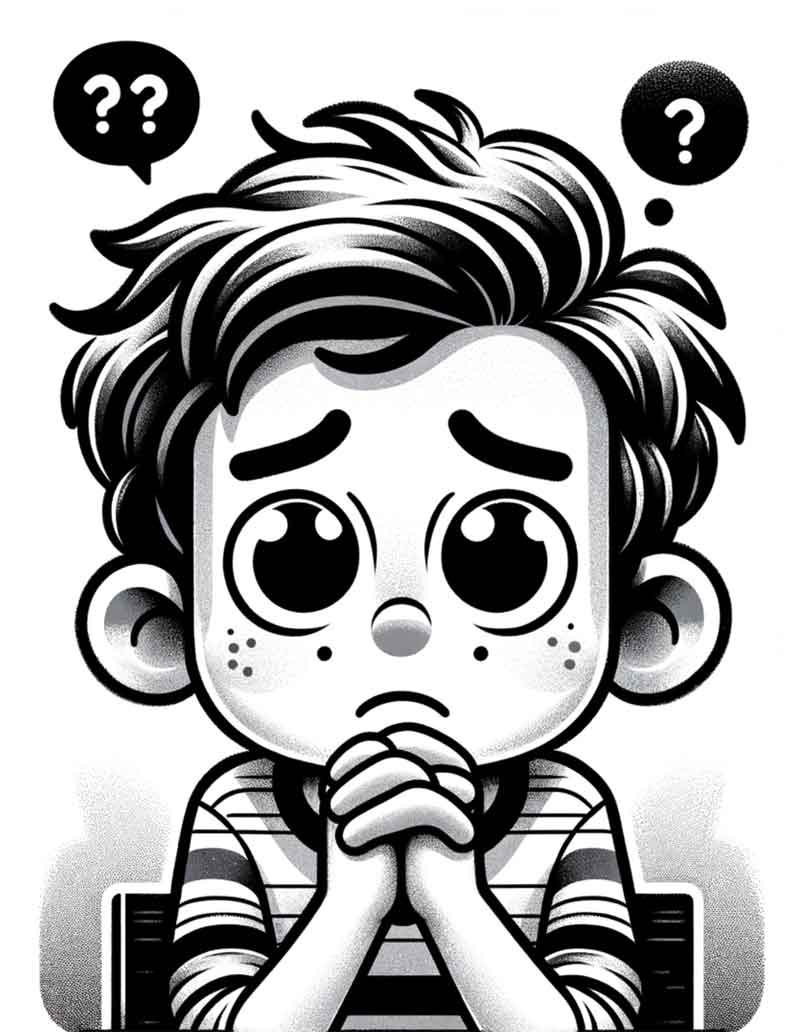War and conflict anxiety: how to mitigate the effect on your child
The emergence of conflicts in Ukraine and now in Israel and Gaza – to say nothing of other ongoing ones – has not only heightened geopolitical tensions but also brought a cascade of economic repercussions that touch the lives of families worldwide. War and conflict is front page in most countries now.
The Ukraine-Russia war affected food supplies more obviously and is currently longer-lasting. Oil prices rose at the same time for related reasons.
You may have found financial challenges – maybe having to take your child out of private school or move house. Even without such an upheaval, it’s likely your child is sensitive and perceptive enough to have become aware of these tremors in their world. It can certainly add to their anxieties and insecurity.
However careful you are to follow the kind of tips I offer below, the ripples of unrest spread far and wide through a school population and you cannot stop that.
So although your child may not grasp the complexities of war and conflict, or rising inflation, sanctions, and soaring energy bills, they feel the ripples in their little ponds. According to what your particular issues are, they’ll notice, for example, when the quality of their meals changes, when their shoes become worn or too small, or when family outings become less frequent.
So why does this knowledge trigger anxiety in your child and what can you do?
The psychological landscape of war, conflict and anxiety – and the need to play

The term "eco-anxiety," often used to describe the stress related to environmental change, can be equally applied here as well – economic and ecological uncertainties are intertwined in your child’s mind.
However, your child’s cognitive development is such that they can sense stress and disruption, war and conflict, even if they can't articulate it. They “feel” inside themselves that their world, once predictable, is now capricious and unstable from their point of view.
Strange as it may seem – and perhaps too simple an answer to accept – the antidote to this unease lies in the very essence of childhood: play.
Just as children feel overcome by grief one minute and run off to play another, it’s the same thing here. They cannot cope with intense feelings for long on end. Children play!
Even if it's with teddy bears and toy guns, they're working something out that they have no words for. Older children play fighting games to try to understand about war and conflict or to work out feelings associated with it.
Their play is not frivolous; it’s the serious business of childhood. Through play, they learn to cope, to create, to imagine, and to feel control in their small universes.
So – our job as parents or caregivers is to focus on fostering and maintaining an environment of playfulness, humour, and routine. Despite our own feelings!
In this way, having loads of time to play will give your child a barrier (albeit temporary each time) against the chaos of war and conflict out there.
Play might not seem our top concern when there are marches to take part in, opinions to voice and charities to support to bring aid to war-torn areas – but it’s vital for our children’s mental health.
Communication as a conduit during war, conflict and anxious times
Amidst these global – and escalating – conflicts, we cannot shield our children from reality, but we can temper their exposure to it.
It's a delicate balance. Not mentioning war and conflict is counterproductive as they know about it already! So we need to inform without overwhelming them. When they ask about why certain things at home are no longer available or possible (think extra heating, a food shortage, more toys etc), we can explain the existence of a "world problem" without burdening them with our deepest fears.
This approach not only protects their mental health but also models how to manage concerns constructively.
Tell them enough to answer questions – but only as far as they have asked. Don’t assume they need more than they ask. They can always come back and ask the next thing.
Managing our own anxieties amid war and conflict
I mentioned our deepest fears. Some people are prophesying Armageddon as a result of war and conflict globally. Others are ratcheting up tensions between racial groups. Yet others are simply burying their fears in drugs and drink because “there’s clearly no tomorrow in sight”.
However, as the adage goes, "You cannot pour from an empty cup." If we want to be the steady presence our children need, we have to find a way to manage our own anxieties healthily. It's about finding our equilibrium so we can be their rock when the ground seems to tremble.
That’s not the same as feigning invulnerability! It's more about showing them that even in the face of difficulties, we can find ways to navigate and adapt.
So let’s have a look at some practical tactics. Not surprisingly, they’re much the same as the usual ways we handle anxiety and change in our families.
Practical solutions and strategies to maintain equilibrium in our children during war and conflict
- Establish a Routine: Maintain a sense of normalcy whatever financial or lifestyle challenges your family faces. Keep regular schedules including for play and bedtime.
- Open Dialogues: Encourage conversations about their feelings and concerns about war and conflict, offering reassurance and love.
- Limit Media Exposure: Be mindful of the news and discussions within earshot of your child. Curate the information that reaches them.
- Family Activities: Engage in activities that foster connection and communication – board games, walks (in nature if you can), or storytelling.
- Educational Opportunities: Use age-appropriate resources to educate about current events in a way that empowers rather than frightens your child.
- Seek Support: However, if needed, don't hesitate to reach out to mental health professionals for guidance. Your child may well find it easier to play out and resolve their anxiety away from the home environment (read some glimpses into the play therapy room here). Asking for help is not a reflection on your parenting, just a reality – and reflects a caring parent.
However, that’s further down the line. There’s lots you can do first, which is why this website exists.
Where does that leave us?
The world may indeed seem more precarious this year, but within our families, we can cultivate a garden of safety and growth. By managing our anxieties and fostering open, age-appropriate communication, we can help our children navigate these uncertain times.
Let’s remember that while we can’t control the winds of change, we can adjust our sails during war and conflict, guiding our children through the storms with courage, love, and the enduring power of play. Together, there’s till every chance we’ll not just endure but thrive.
Without hope, what else is there?
Takeaway
- Maintain daily routines to provide stability for your children during war and conflict.
- Encourage play and humour to foster resilience and manage stress.
- Shield children from adult worries; answer their questions simply and calmly.
- Manage your own anxiety to be a strong support system for your family.
- Limit children's exposure to media and adult conversations about global crises.
- Engage in family activities that promote bonding and open communication.
- Educate children about current events in an empowering, age-appropriate manner.
- Seek professional support if the family's emotional wellbeing is at stake.






















